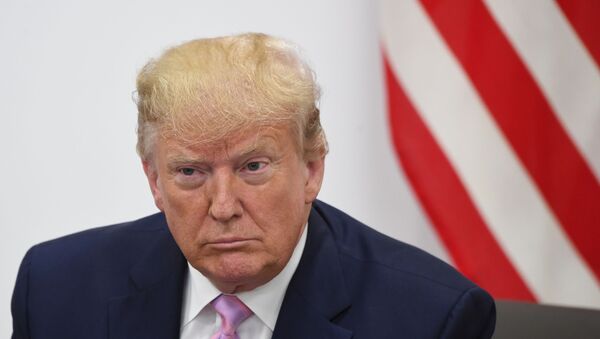The index was named after Trump’s infamous and still mysterious “covfefe” tweet, and according to JP Morgan it explains a measurable fraction of the moves in implied rate volatility for 2-year and 5-year Treasurys.
“This makes rough sense as much of the president’s tweets have been focused on the Federal Reserve, and as trade tensions are broadly seen as, first and foremost, impactful on near-term economic performance and, likewise, the Fed’s reaction to such developments,” wrote the authors of the JP Morgan report.
It was revealed that Trump’s market-moving tweets most often address trade and monetary policy, with keywords including “China,” “billion” and “products.” These tweets are increasingly less likely to receive favourable responses, such as likes or retweets, from the president’s followers.
According to the report, out of about 4,000 non-retweets occurring during market hours from 2018 to the present, only 146 moved the market. Most of Trump’s tweets come around noon to 2:00 pm, with a 1:00 pm tweet roughly three times as likely to arrive than at any other hour of the afternoon or evening, according to JP Morgan’s report.
Trump’s 3:00 am tweets are also more common than 3:00 pm tweets, which can be a nuisance for US rates markets, since overnight market depth tends to be thin. Trump is presumably asleep from 5:00 am to 10:00 am, according to the report, since there’s almost zero tweeting activity during that time.
While sudden twitter attacks on China trade or the Federal Reserve can disrupt markets, he has still been good for the stock market overall. The Dow is up 42% since the 2016 presidential election and 31% since his inauguration.
“Trade talk, political campaigning and tweets have contributed to volatility, from China to Fed policy to tax policy,” wrote the brokerage’s chief equity strategist Savita Subramanian.
“And new tariffs announced in August indicate downside risk to our 2019/20 EPS growth forecasts of +2%/+7%, where indirect impacts from hits to corporate or consumer confidence could be significant.”




